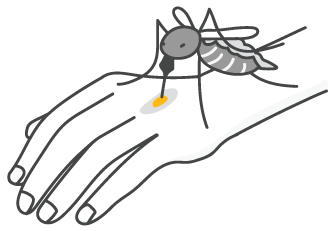The biggest concern when dealing with dengue fever is the total lack of treatment options. Rest and plenty of fluid intake are the two most common suggestions to patients suffering from the disease.
Physicians often prescribe medication to alleviate the condition’s common symptoms, rather than to fight the viral infection itself.
Since there is no cure, the treatment is to let the virus run its course. The dengue fever usually takes about two weeks to subside, and being hospitalized can be a suitable option since it ensures that you get an adequate amount of rest and are drinking plenty of water.
Depending on the fall in platelet count, a blood transfusion may be required.
Apart from hospitalization, fever and pain medication can be used to avoid excess discomfort. However, in the case of severe infections or fevers, patients may need to undergo the following as well:
- Periodic monitoring of the affected individual’s blood pressure
- In the case of blood loss, they may need to undergo transfusion to maintain healthy levels.
- Dehydration is a common issue for dengue patients, which is why intravenous electrolyte and fluid replacement may be necessary.
There is no one size fits all regarding dengue treatment. Each case is different, and doctors may need to adapt procedures accordingly.
Another important factor to remember here is that besides severe cases, dengue treatment can be completed at home, using home remedies.






















